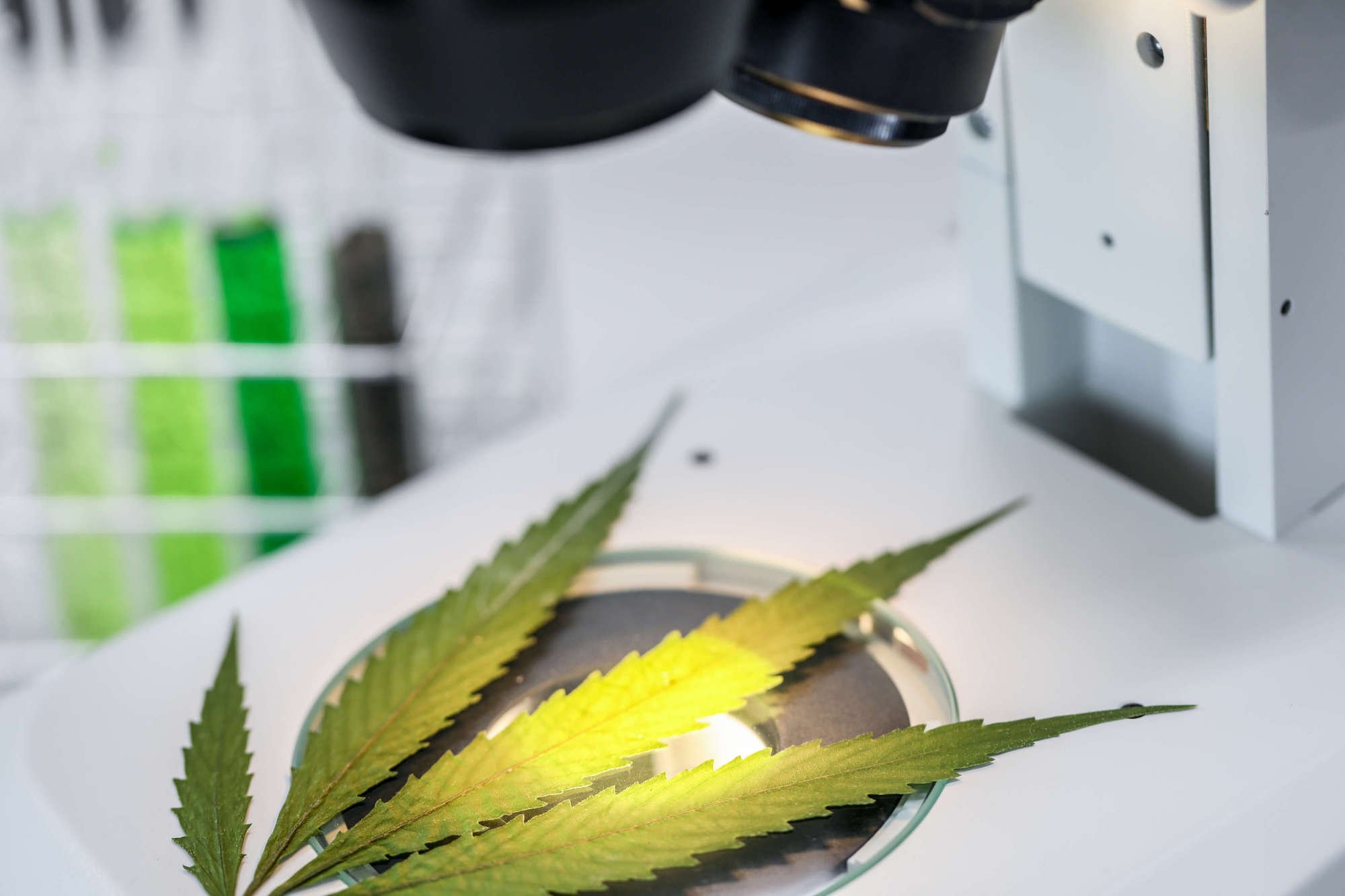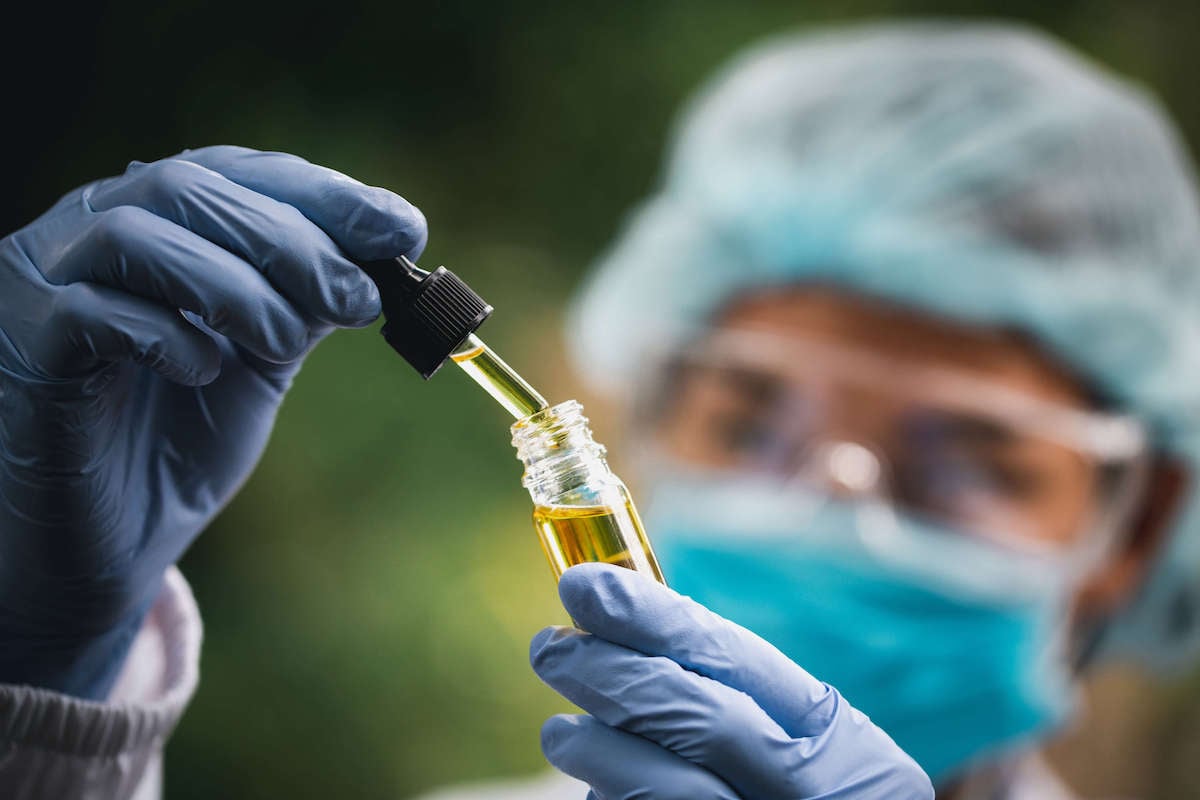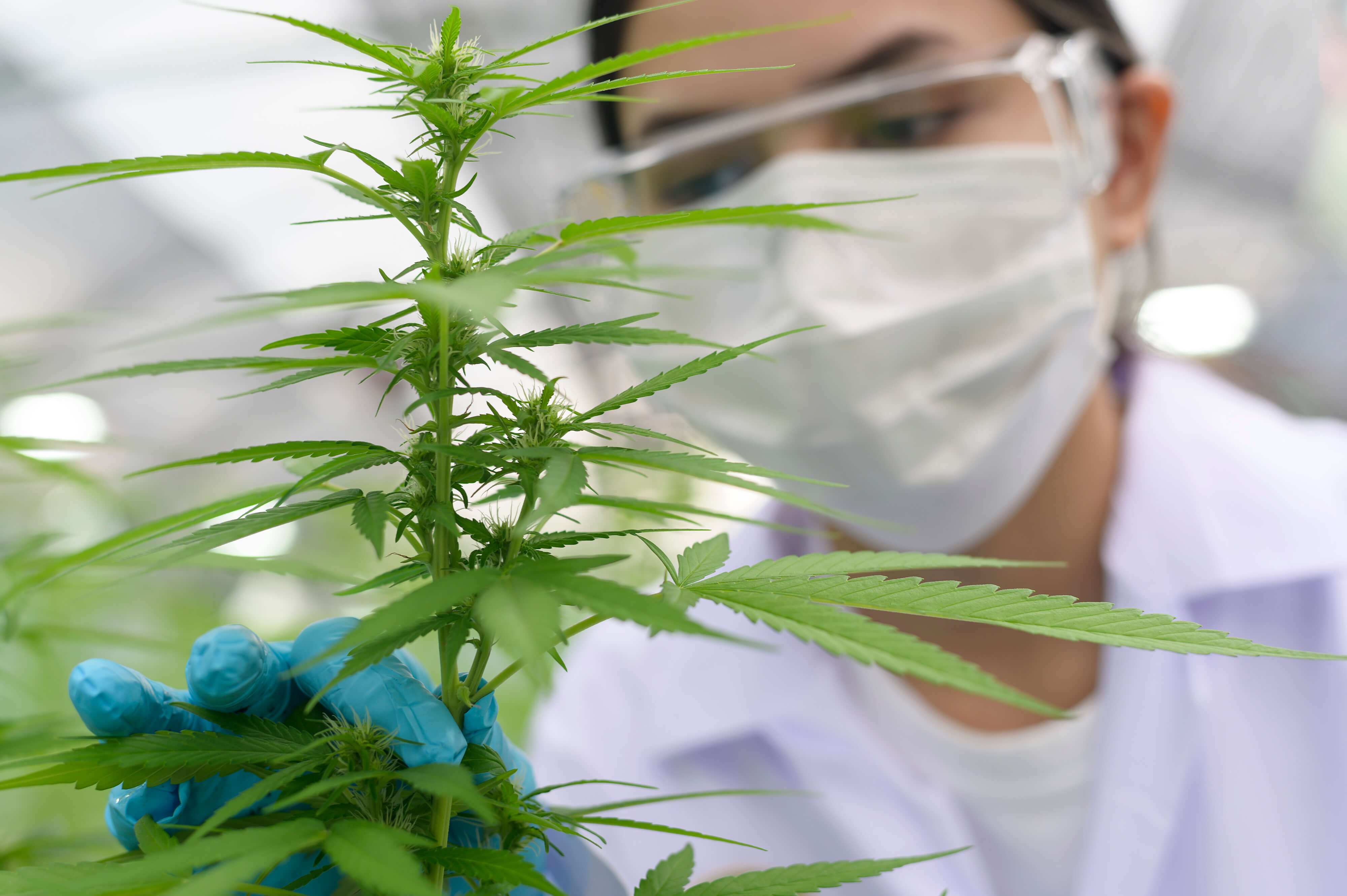Headline
Add text here
Headline
Add text here
Add text here
Add text here

Learn about the impacts of changing regulations on cannabis labs and how you can use a LIMS to stay compliant with quality control testing protocols.

The legalization of cannabis has often been the subject of much debate. In 1996, California launched its first medical marijuana program, followed by numerous other states. In 2012, some U.S. states began to legalize marijuana for recreational use.
Because cannabis and its derivatives are widely known for their mental and physical effects when consumed, legislative reform for cannabis has increased in support. It also means that in states where cannabis has been legalized for medical and/or recreational use, there are stringent regulations to ensure cannabis and its derivatives are safe for consumption.
Licensed growers must meet state safety standards and ever-evolving regulatory requirements. This means every grower must conform to state regulatory tests to sell their products. Some cannabis producers have fallen into the trap of believing they can conduct their own testing. However, the impact of failing audits has put many growers out of business.
Therefore, growers and manufacturers of cannabis-related products should partner with a reputable cannabis testing laboratory.
State regulatory bodies have imposed strict testing guidelines to ensure potency and ensure consumer safety. These regulations require that every hemp plant, product and derivative be tracked through the supply chain. Patient and consumer safety are at the heart of this legislation. Additionally, these regulations ensure consumers are receiving legitimate products and help to keep illicit products off of the market.
Cannabis testing laboratories are in place to verify that products are safe for medical and/ or recreational consumption. Cannabis testing laboratories in the U.S. must be ISO accredited — ISO 17025 certification is non-negotiable. Regulatory authorities will not accept testing and calibration results from cannabis laboratories that aren’t accredited.
The second type of regulatory compliance comes from individual states. Each state that has legalized the use of medical and recreational cannabis requires growers, manufacturers, laboratories, and retailers to comply with state regulations.
A license to enable cannabis testing is granted per laboratory location. The laboratory can use a laboratory information management system (LIMS) across sites. However, instruments need to be revalidated for proficiency for each site. These regulations are in place to prevent those in the cannabis industry from selling products out the back door or manipulating results.
The problem for growers and cannabis testing laboratories is that regulatory requirements vary from state to state. What adds further complexity is that some regulatory bodies fall under the Drug Enforcement Administration (DEA), others under the Food and Drug Administration (FDA), and others under the Department of Pharmacy or Department of Health. These regulatory bodies are often made of people who aren’t subject matter experts in microbiology or analysis. This further complicates testing requirements, as they are inconsistent across states.
Every state has different requirements as to how laboratories handle various instruments to various standards.
The cannabis industry regulations also pose some risks to testing laboratories and the patients that they serve.
As a lucrative industry, the popularity of the cannabis industry can bring on unethical players. For example, some growers, manufacturers, and processors of cannabis products shop around for laboratories that will falsify THC potency and contaminants levels.
In addition, all growers must obtain a Certificate Of Analysis (COA) to sell any cannabis products. Because of this mandate, some testing laboratories may be tempted to take shortcuts to deliver an inaccurate COA that can’t stand up under scrutiny.
Rapid turnaround times are important but compliance is even more critical. It can cost more than $1 million to set up a cannabis testing laboratory. If a lab cannot show proof of changes after failing an audit, the lab can be shut down, risking millions of dollars. If consumers get hurt by contaminated products, the laboratory is also at risk of lawsuits.
Cultivators of the cannabis plant have different drying and curing processes which can alter the results in testing data. For example, some cultivators might spray the flower with a sheen of distillate, while others dust with additional THC, both designated to increase the potency numbers during testing.
Some laboratories have been known to report the level of contaminants in the product inaccurately. Other laboratories might promise quick turn-around times, which results in cutting corners. Unethical practices such as these are bad for the industry, bad for business and bad for consumers.
If samples fail to stand up under scrutiny, growers could be losing millions of dollars worth of products they cannot sell. In addition, labs could be shut down due to unethical or sloppy practices, and consumers can be victims of contaminated products.
When growers, edible manufacturers, or laboratories take shortcuts, it puts consumers at risk. There have been instances where products have been mislabeled or contaminated and THC levels misreported, resulting in adverse effects.
For example, pesticides and heavy metals can contaminate products. Pesticides behave very differently when combusted and can become toxic. Additionally, hemp that is sold in gas stations for cheap may be mislabeled or not contain any CBD.
To safeguard the integrity of the testing process, it is recommended that cannabis testing laboratories use LIMS to automate their workflows. To protect growers, manufacturers, and consumers, cannabis testing laboratories shouldn’t rely on paper-based or manual systems in their testing routines. This leaves them open to human errors, which can lead to non-compliance and potentially failed audits.
A trusted LIMS provides a quality management system (QMS) with the ability to deliver quality assurance (QA) and quality control (QC) throughout the entire testing process. Choosing a LIMS provider who can preload state regulations into the system is a huge advantage. Laboratory owners or managers can rest assured they don’t have to customize their LIMS to meet individual state testing requirements.

Growers invest hundreds of thousands of dollars in research, plants and equipment just to cultivate cannabis for consumption. Once a crop is ready for harvest, speed to market is imperative. Getting the testing process underway as quickly as possible is vital to their success. Remember, every day without a COA is a day they can’t sell their products.
Growers that use a LIMS (such as LabWare GROW) can immediately start the order process. The system instantly generates a barcode and gets ready to automate the workflows even before a sample is received for testing. Once the order is placed, the laboratory immediately starts printing the labels and getting their containers ready for testing while waiting for the samples to arrive.
When the sample arrives, it is reflected in the order management tool. The software immediately registers the samples and provides bulk receipts. It records the quantity of cannabis received, which is then stored in the LIMS inventory manager. The sample gets assigned instantly to the technician who is responsible for the preparation for testing.
Using a LIMS can help the lab work synergistically from the technician to the pre-analyst. First, the samples move to the supervisors doing the instrumentation. Next, samples used in the testing process are recorded, along with the disposing of unused samples. This automated workflow provides traceability of the entire chain of custody and inventory associated with the sample.
Using a LIMS can help growers track the testing process in real-time, saving them time and money. The grower can log into the dashboard at any time and understand what stage their samples are at in the testing process. They are automatically advised that when a COA is released, they may begin selling their product.
Some state regulators require sampling agents to go to the grower’s site to collect samples physically. Samples can’t be shipped by mail, nor can they be sent across state lines. Therefore, it makes sense for growers to use laboratories close to their operations. Since this is not always possible, samplers may need to travel for hours to a grower’s site.
Using a LIMS (like LabWare GROW) keeps data centralized and allows field technicians and samplers to place orders while in the field. They can also order additional tests remotely as required. This expedites the ordering process, which is hugely beneficial for growers as it saves time and money.
The system should also be able to inform the field technicians and growers about what samples need to be collected. Samplers can then calculate the cannabis samples they need, which reduces waste so growers do not have more products than they can sell.
Since the LIMS delivers a rapid turnaround for compliance testing and gets COAs out to their clients quickly, it means growers can go to market much faster than with manual processes.
A LIMS that offers a client-facing web portal helps cannabis testing laboratories keep customers informed effectively and efficiently.
As noted, a grower can log into the system remotely and immediately place an order. The laboratory does not need to wait for the actual samples to get the testing process underway. Instead, the LIMS immediately prepares for the arrival of the sample by printing barcodes and labels. Bottles are prepared for testing as per state regulations. As soon as the samples arrive, the testing goes into overdrive.
If a sample fails a test in the process, there is an override built into the system to analyze why it happened, and additional tests will be ordered immediately. Customers are automatically informed if the error is at their end, and they can take remedial action without delay. Labs using a manual or paper-based laboratory system will likely experience delays. First, a client must call to place an order for a test. Next, growers must keep calling to see where their samples are in the testing process. Issuing the COA becomes a manual process. This dramatically slows down the testing and approval process.
Trusting a LIMS to automate these processes creates workflow efficiencies. There is no more picking up the phone or waiting around for results. A grower or edible manufacturer can log into their client portal and know what stage their samples are at in the testing process. Customers are automatically informed when the COA is ready in real time. They can print the COA in the office immediately or generate a COA on demand. There is no waiting around for results.
An excellent cannabis testing laboratory also knows the end users don’t want to be confused with all the technical jargon behind the product. All consumers want to know is whether they have any concerns about the reliability and potency of the product. Labeling gives consumers the confidence they are receiving a product that meets regulatory standards.
With a label, consumers can easily view a COA by scanning a unique QR code on the label. The QR code prevents counterfeiting and keeps illicit products off the streets. The ability to print a COA ensures transparency and builds consumer confidence. The consumer can easily see what tests were carried out and that they are receiving a quality product. And, since cannabis LIMS workflows are automated, all stakeholders are assured that the data input is accurate and the results weren’t subject to human error.

Laboratories, growers, edible manufacturers and consumers need confidence that what is being reported is accurate. Using a made-for-purpose cannabis LIMS such as LabWare GROW, laboratory managers can rest assured knowing their testing processes are robust, accurate, compliant and will stand up under audit.
Paper-based tracking in a laboratory environment is a massive risk for growers, the laboratory, and consumers. Data copied and pasted from spreadsheets is subject to inaccuracies due to human error. Paperwork can be lost, which means a laboratory cannot prove chain of custody, let alone issue a COA.
When cannabis samples are received, the laboratory is required to track the quantity received and its use in the testing process. On receipt, samples must be identified and weighed. The laboratory must also provide evidence of where these samples were stored. Additionally, the laboratory needs to identify the personnel employed in the laboratory who handle the samples throughout the testing process.
Samples that were not used or analyzed must be tracked and their disposal recorded.
When a grower or edible manufacturer places an order digitally within the LIMS, the system immediately generates an RFID barcode. This barcode automatically tracks each sample throughout the entire workflow with complete accuracy.
Workflow compliance begins with a positive ID from the barcode from login to final disposal. Sample tracking enables accurate monitoring and reporting of the chain of custody from receipt to COA issuing.
As soon as the samples come into the lab, the order management tool built into the LIMS immediately registers the sample and issues bulk receipts. Sample inventory is automatically recorded in the inventory management system, which is then tracked as it moves through the laboratory.
This automated process gives growers and edible manufacturers peace of mind that their products meet regulatory standards. Once a COA is issued, they can immediately sell their products. Each day the issuing of a COA costs growers money, holding onto products they can’t sell.
LabWare GROW is a trusted LIMS that comes pre-configured to contain best- practice workflows that adhere to Good Laboratory Practice (GMP) and Good Manufacturing Practice (GLP) requirements.
Once the sample is entered into the inventory manager, the LIMS assigns the technician responsible for testing. Everything from thereon happens synergistically from the technician to the pre-analyst to the supervisors accountable for instrumentation recording.
Because state regulatory requirements are preloaded into the LIMS, a list of the tests required by the state is automatically input into the testing instruments. What makes this LIMS bulletproof is that a user cannot change a value of an instrument, nor are there limits to the types of instruments they can connect to within the laboratory environment.
The other protection for growers and edible manufacturers is that access levels come with restrictions. Employees are only given access at a level that enables them to carry out their assigned function within the laboratory environment. Some technicians can only review the data so they can’t alter the outcome of any tests or manipulate any data.
The maintenance and calibration schedules of laboratory instruments are automatically tracked within a cannabis LIMS. The system can easily track employee training as required by regulatory bodies. The system also records comprehensive audit logs for all laboratory activities using a timestamp. All date-sensitive data is inaccessible to unauthorized users. This keeps records secure and confidential.
Once the samples have gone through an automatic and robust testing process, it then delivers a COA. The LIMS can easily produce a COA along with a complete chain of custody reports.
At the end of the testing workflow, numerous reports can be generated to provide the laboratory manager with KPIs. Examples are turnaround times, tests per week, tests per analyst and various financial reports that integrate with accounting software like Quickbooks.
Your cannabis LIMS should also provide laboratory managers with summaries of orders from clients, along with the consumables used in the testing process. Additionally, it gives them inventory management reports advising where specific inventory levels are low and need reordering.
If a laboratory is audited, the system can deliver a range of reports regarding instrument calibration, user activity logs, and audit history of every sample tested.

Because of the automated workflows and automatic assignment of specification tests, a cannabis-configured LIMS should provide built-in quality control and assurance measures. Check if automating workflows will eliminate this concern and if workflows are defined within the software.
A cannabis LIMS should automatically identify what tests it needs to perform according to individual state regulatory requirements. It also needs to know the pass and fail criteria and generate reports accordingly. If the sample fails, you want to be assured the software automatically launches an investigation. With that level of control, it allows you to take the appropriate action immediately, based on the results — and much quicker than with a manual process.
The processing of cannabis samples must produce accurate results every time and comply with state regulatory standards specific to cannabis testing. Using a LIMS such as LabWare GROW will ensure results are prepopulated with an established schedule to ensure both the required tests are carried out, and proper testing is performed consistently.
Your LIMS solution should include folders and visual workflows with built-in functionality to select appropriate samples. This functionality enables you to clearly identify trends, including control charting and stability trends.
Space and money are always key components of operational efficiency. A LIMS option needs to utilize automated processes to give you control and flexibility to deliver quality outcomes. The LIMS needs to reduce the risk of human error through process automation. Any processes prone to human error make it difficult to scale, share or report results with any degree of accuracy.
Data reporting is vital to understand how efficient your workflows are. A LIMS needs to reveal if anything is undermining the quality of testing, systems and processes. Your LIMS solution must meet the challenging regulatory environment of the cannabis industry, assuring the integrity of the data.
Choose LIMS software that makes it easy to report on all activities. Check if the data is stored and processed consistently through an automated process. If so, the data can be used to uncover your immediate needs and understand the context of that analysis. For instance, if you are carrying out instrument calibration, the data will tell you if the calibration falls into an acceptable range and passes specifications. The data should also highlight if that instrument is fit for use.
Suppose you were carrying out an impurity test on a sample that just came in. In that case, you would need to know what that looks like compared to other samples. You will know by comparing previous batches from the same grower or identifying time points in the stability program. This allows you to make a scientific judgment on whether the impurity is increasing.
With this type of data in hand, you can take that information to the next level of assessment. By analyzing the data in the context of a bigger picture, the laboratory can provide feedback to growers and edible manufacturers if they need to make adjustments in their process to ensure consistency in the quality of their products.
Without a LIMS in place, there is ample room for error associated with sampling, data collection and maintaining a chain of custody. Manual documentation can rapidly become cumbersome and prone to human error. Without LIMS, as the number of samples tested grows, this strains the testing environment with extensive controls and significant analysis replication.
Some might think you need to develop a LIMS solution for your own specific requirements. Purpose- built cannabis LIMS such as LabWare GROW have been developed in a laboratory, specifically for the testing of cannabis-related products. For instance,
if you write your own requirements and need the LIMS to bend to meet these requirements, you will likely find you end up with LIMS software that is not as good.
Taking a fully customized approach to implementing a LIMS suited to cannabis testing is generally more expensive — and not necessarily better. When you consider ongoing maintenance and support for a customized solution, you will find this option is more costly in the long run.
Before deciding what LIMS is best for you, we recommend that you invite several LIMS providers to give you a demo. That way, you can reliably compare and evaluate features that are most important to your laboratory.
Integrating technology into your laboratory should never be a one-person decision. Key stakeholders have different perspectives on what they need from technology, depending on their individual needs. Omitting key stakeholders from the purchasing process will lead to conflict, confusion and internal battles that can be avoided by ensuring the purchase and implementation of technology that is right for you.
When evaluating and comparing LIMS software, keep the following considerations in mind:
There are free cannabis LIMS options available to laboratories but you should be aware of the risks associated with using a free solution.
Free means two things:
Though it’s tempting to use a low-cost provider or even a free LIMS, it also comes at a hidden cost and with a certain risk. With a free solution, you do not own your own testing or sampling data. Your data can be mined or sold, and they reserve the right to publish the data. Your customers are likely to be unhappy with having their data published, mined or sold. Free software doesn’t cover needs, nor does it integrate well with compliance standards.
Auditors widely recognize LabWare GROW as the premier system for cannabis testing. They know workflows are compliant with state regulations. They also understand all the necessary tracking is built into the software, from start to finish.
LabWare GROW was developed by laboratory professionals, taking into account pain points, concerns, and gridlock. The system enables cannabis testing laboratories to automate orders, manage samples, carry out required tests and report on cannabis and hemp analysis efficiently.
A critical component of the LabWare GROW LIMS is that it works throughout the entire testing process. Without traceability, you can’t get to the reliability portion of the process. If you can’t create batches, you can’t make a barcode. If you can’t enter your dilution factors into the process, you can’t report the results correctly. All stages must process in synergy to interact and create an acceptable outcome.
The amount being tested and the amount being disposed of continues to be automated, allowing the LIMS to produce an accurate chain of custody and record the inventory associated with the sample. At each stage of the process, it is transparent and traceable. And the customer is automatically informed when the COA is issued.
In the long run, the capabilities built into LabWare GROW save money by streamlining and speeding up workflows along with prompt reporting. Everything is tracked, from the minute an order is placed through to issuing a COA without human intervention, maintaining the integrity of the data.
The experience and research involved in developing LabWare GROW improves laboratory performance in all areas. Customers of LabWare GROW often find 15-20 percent savings in time that allows you to deliver testing results to your customers at a speed other systems can’t provide.

There are three key elements to consider in implementing LIMS software:
Leading cannabis LIMS providers offer robust onboarding platforms, warranties, built-in maintenance schedules and ongoing support. Whether the software experiences some sort of glitch or a laboratory member needs some clarification on using the LIMS solution, it is important to know that support is available. It is also vital to ensure that any LIMS solution is proactively maintained to consistently serve the laboratory in its intended manner.
A brief outage or malfunction could leave a significant gap in your records, compromising the implementation to a degree. Ask the LIMS provider to brief you about outages, response time and plans of action to deal with possible glitches. You need to be assured of the level of support to manage ongoing expectations.
During the evaluation and implementation stage, find out about the frequency of LIMS updates. Your people need to know the general frequency with which the platform is updated. They also need to be aware of how updates are announced, deployed and how long they last.
Most laboratories will have a target go-live date for their LIMS solution, especially in anticipation of an audit. Your LIMS provider should provide a deployment and implementation timeline.
All types of cannabis and hemp testing laboratories can benefit from using a LIMS. A centralized system with a trusted provider manages every aspect of cannabis testing. It supports QC testing along with workflow approvals, audits, reviews and provides traceability throughout the entire supply chain.
Labs that test the following should consider implementing a LIMS:
LabWare GROW, in particular, works with the following types of cannabis testing labs:

Working with a software company that intricately understands how a modern laboratory operates and the role everyone plays in the pursuit of excellence and compliance cannot be underestimated.
Laboratory Manager
Starting with the lab manager, they have a vested interest in ensuring the laboratory runs smoothly and is compliant with state and federal regulations. When LIMS controls the everyday operation, the lab manager is assured that testing is carried out accurately and tamper-free.
With a LIMS, they can control the day-to-day operations while the software provides them with data reports, work assignments, and workload management.
Level Twos
The second in command is level two. They are the people who review the data. They only get access to parts of the system that enable them to carry out their job.
Level Ones
At a lower level of access, you find the level ones. They are the people who input data into the software to get the testing into the machines. This level of access is restricted, which means they cannot alter the outcome of a test. Sample technicians also need access at a lesser level. They need to view orders or workflows that are outstanding.
Field Technicians
Finally, we have the field technicians. These are the people who can pick up samples and order tests. They can place orders remotely at the grower’s site and also modify orders.
Since samples cannot be mailed by USPS, they must be collected in person. DHL, UPS and FEDEX will refuse to ship cannabis samples. You can’t ship cannabis products across state lines. Therefore, they must be physically collected by a lab agent sampler.
With a cannabis LIMS, growers and edible manufacturers of cannabis products can naturally feel confident the laboratory has control throughout the testing process. The result is that both growers and consumers receive a product that is not contaminated or mislabeled.
Strict state government supervision over medical and recreational marijuana means you have a choice when it comes to compliance. You could use a homegrown solution or basic LIMS to manage the nuances of marijuana testing. Or, you can trust LabWare GROW, which comes pre-built to handle seed-to-sale tracking.
Benefits associated with using a cannabis-specific LIMS:
LabWare GROW takes laboratory testing from a level that could be complicated and navigates these complexities. The ensuing result means taking the complexities out of cannabis testing into something really simple, functional, and purposeful.